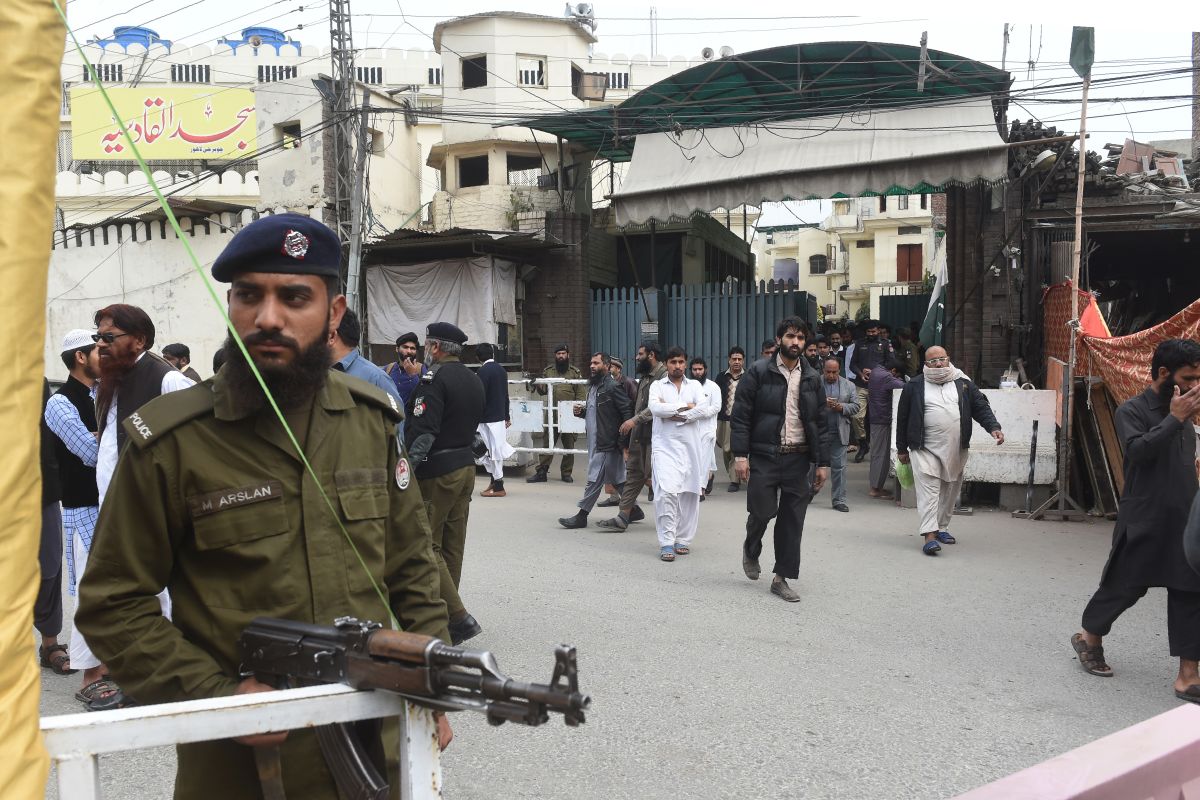The Imran Khan government in Pakistan has decided to upgrade a group of banned terror outfits, including the Jaish-e-Mohammad (JeM), to ‘high risk’ category and start monitoring and re-examining their activities to comply with the requirements of the Financial Action Task Force (FATF). The authorities will also monitor the profiles of the banned terror outfits under “heightened security checks at all layers of legal, administrative, investigative and financial regimes”, Dawn News reported on Saturday.
The Paris-based global watchdog against financial crimes had last month decided to keep Pakistan on its ‘grey list’ and asked the country to take steps to curb terror financing and money laundering. The decision came after India relentlessly campaigned against its intransigent neighbour in the wake of the Pulwama terror attack of 14 February 2019.
Advertisement
The FATF had expressed dissatisfaction over considering these outfits as “low to medium risk” and said Pakistan did “not demonstrate a proper understanding of the terror financing risks posed by Daesh, AQ (Al Qaeda), Jud (Jamaatud Dawa), FIF (Falah-i-Insaniat Foundation), LeT (Lashkar-e-Taiba), JeM (Jaish-e-Mohammad), HQN (Haqqani network), and persons affiliated with the Taliban”.
READ | ‘Naya Pakistan’ with ‘nayi soch’ should display ‘naya action’ against terror groups: India
All these banned terror outfits have now been described as “high-risk” entities. These would be subjected to greater scrutiny by all agencies and institutions, “starting from their registration to operations and from their fund collection to bank accounts and issuance of suspicious transactions, information sharing and so on”, an official told Dawn on Friday.
The institutions are the Federal Investigation Agency, Securities and Exchange Commission of Pakistan, State Bank of Pakistan, National Counter-Terrorism Authority, and the Financial Monitoring Unit, among others.
The official said these decisions were taken at a meeting of the general council on FATF led by Finance Secretary Arif Ahmed Khan as part of a series of meetings convened to comply with the watchdog’s obligations.
Khan had led the Pakistani delegation to the meetings of the FATF plenary and its group reviews held in Paris from February 18-22. Pakistan had banned two terror outfits on 21 February.
READ | FATF grey list: Pakistan bankers say terror financing watchdog’s demands must be met
Quoting the official, Dawn reported that the institutions would complete this exercise within two weeks and present a compliance report to a delegation of the Asia-Pacific Joint Group. The regional associate of the FATF is scheduled to visit Islamabad on 24 March.
The delegation will review Pakistan’s performance on the basis of Islamabad’s fresh exercise and submit its assessment report to the FATF, which will then make a fresh review of Pakistan’s current progress and whether the country should be moved out of the “grey list” it imposed last year or be downgraded to the “black list” having serious financial and economic repercussions in case of serious shortcomings.











